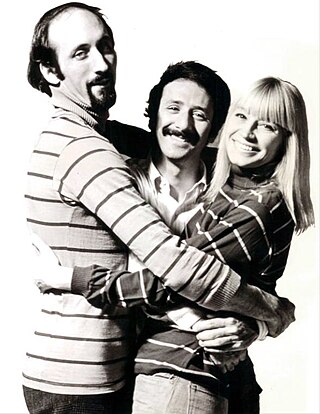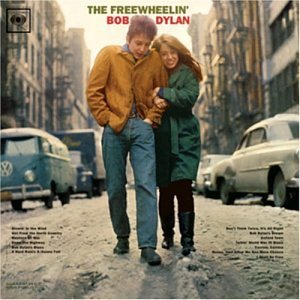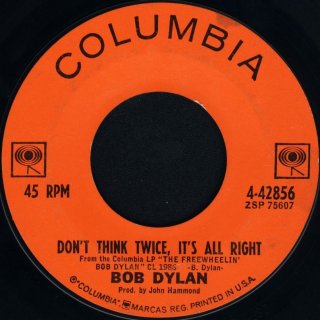Related Research Articles

Gordon Meredith Lightfoot Jr. was a Canadian singer-songwriter and guitarist who achieved international success in folk, folk-rock, and country music. He is credited with helping to define the folk-pop sound of the 1960s and 1970s. He has been referred to as Canada's greatest songwriter and his songs have been recorded by some of the world's most renowned musical artists. Lightfoot's biographer Nicholas Jennings said, "His name is synonymous with timeless songs about trains and shipwrecks, rivers and highways, lovers and loneliness."

Peter, Paul and Mary were an American folk group formed in New York City in 1961 during the American folk music revival phenomenon. The trio consisted of tenor Peter Yarrow, baritone Paul Stookey, and contralto Mary Travers. The group's repertoire included songs written by Yarrow and Stookey, early songs by Bob Dylan, and covers of other folk musicians. They were enormously successful in the early- and mid-1960s, with their debut album topping the charts for weeks, and helped popularize the folk music revival. After the death of Travers in 2009, Yarrow and Stookey continued to perform as a duo under their individual names.

The Freewheelin' Bob Dylan is the second studio album by American singer-songwriter Bob Dylan, released on May 27, 1963 by Columbia Records. Whereas his self-titled debut album Bob Dylan had contained only two original songs, this album represented the beginning of Dylan's writing contemporary lyrics to traditional melodies. Eleven of the thirteen songs on the album are Dylan's original compositions. It opens with "Blowin' in the Wind", which became an anthem of the 1960s, and an international hit for folk trio Peter, Paul and Mary soon after the release of the album. The album featured several other songs which came to be regarded as among Dylan's best compositions and classics of the 1960s folk scene: "Girl from the North Country", "Masters of War", "A Hard Rain's a-Gonna Fall" and "Don't Think Twice, It's All Right".

Ian & Sylvia were a Canadian folk and country music duo which consisted of Ian and Sylvia Tyson. They began performing together in 1959, married in 1964, and divorced and stopped performing together in 1975.

"Blowin' in the Wind" is a song written by Bob Dylan in 1962. It was released as a single and included on his album The Freewheelin' Bob Dylan in 1963. It has been described as a protest song and poses a series of rhetorical questions about peace, war, and freedom. The refrain "The answer, my friend, is blowin' in the wind" has been described as "impenetrably ambiguous: either the answer is so obvious it is right in your face, or the answer is as intangible as the wind".

Ian Dawson Tyson was a Canadian singer-songwriter who wrote several folk songs, including "Four Strong Winds" and "Someday Soon", and performed with partner Sylvia Tyson as the duo Ian & Sylvia.
The Vanguards were a rock band from Bærum, Norway that debuted in 1961. Although the band disbanded eight years later, members continued to reunite for appearances during the 1970s.

"Don't Think Twice, It's All Right" is a song written by Bob Dylan in 1962 and released the following year on his second studio album, The Freewheelin' Bob Dylan, and as the B-side of the single "Blowin' in the Wind". The song was covered by several other artists, including Peter, Paul and Mary, who released it as a single, which reached the Top 10 of the Billboard Hot 100.

Sylvia Tyson, is a Canadian musician, performer, singer-songwriter and broadcaster. She is best known as part of the folk duo Ian & Sylvia, with Ian Tyson. Since 1993, she has been a member of the all-female folk group Quartette.
Great Speckled Bird was a country rock group formed in 1969 by the Canadian musical duo Ian & Sylvia. Ian Tyson sang, played guitar and composed. Sylvia Tyson sang, composed and occasionally played piano. The other founding members were Amos Garrett on guitar and occasional vocals, Ben Keith on steel guitar, Ken Kalmusky on bass and Ricky Marcus on drums. They were named after the song, "The Great Speckled Bird", as recorded by Roy Acuff (1938).

Great Speckled Bird is a country rock album by Great Speckled Bird, a band formed in 1969 by Canadian musicians Ian and Sylvia Tyson. The other group members at the time of recording were Buddy Cage, on pedal steel guitar, Amos Garrett, on guitar and backup vocals, and N.D. Smart, on drums. Nashville session musicians David Briggs and Norbert Putnam sat in, with Briggs on piano and Putnam on bass guitar. Although founding member Ken Kalmusky is listed in the original liner notes, he had actually departed the group prior to recording.
Colleen Susan Peterson was a Canadian country and folk singer, who performed both as a solo artist and as a member of the band Quartette.
Amos Garrett is an American-Canadian blues and blues-rock musician, guitarist, singer, composer, and musical arranger. He has written instructional books about music and guitar. Garrett holds dual citizenship and was raised in Toronto and Montreal. He is best known for his guitar solos on Maria Muldaur's recording "Midnight at the Oasis", and on Paul Butterfield's Better Days recording of "Please Send Me Someone to Love." He has written books about music, such as "Amos Garrett—Stringbending: A Master Class".
"You Were on My Mind" is a popular song written by Sylvia Fricker in 1961. It was originally recorded by Ian & Sylvia, but better known versions were recorded by We Five and Crispian St. Peters.
"Tomorrow Is a Long Time" is a song written and recorded by Bob Dylan. Dylan's version first appeared on the album Bob Dylan's Greatest Hits Vol. II compilation, released in 1971. It was subsequently included in the triple LP compilation Masterpieces.

Jack Elliott is an album by American folk musician Ramblin' Jack Elliott, released in 1964. It was his only principal release on the Vanguard label.

"Big River" is a song written and originally recorded by Johnny Cash. Released as a single by Sun Records in 1958, it went as high as #4 on the Billboard country music charts and stayed on the charts for 14 weeks.
"Someday Soon" is a song composed by Canadian singer-songwriter Ian Tyson who recorded the song with Sylvia Fricker as the duo Ian & Sylvia in 1963. Cited by Richie Unterberger of Allmusic as "clearly point[ing] toward [its writer's] future C&W/cowboy direction", "Someday Soon" would be brought to prominence via a 1968 recording by Judy Collins, and subsequently recorded by a number of artists primarily in the country and western field. In 2010 "Someday Soon" was honored by the Western Writers of America as one of the "Top 100 Western Songs" of all time.
"Farewell", also known as "Fare Thee Well", is a song by American singer-songwriter Bob Dylan. Dylan wrote the song in January 1963. He considered it for his third album, The Times They Are a-Changin', but only attempted a few takes during the album's first studio session. Dylan's earlier recordings of "Farewell" found their way onto various bootlegs, and a collection of demos that included the song was released in October 2010 on The Bootleg Series Vol. 9 – The Witmark Demos: 1962–1964.

A World of Our Own is the fourth studio album by the Australian group The Seekers. The album was released in 1965. In some countries, the album was titled The Seekers. The album peaked at number 123 in the Billboard 200 and number 5 in the United Kingdom.
References
- ↑ "Four Strong Winds / Canadian Songwriters Hall of Fame Inductee". Canadian Songwriters Hall of Fame. Retrieved 2019-07-28.
Tyson went to his manager Albert Grossman's New York City apartment and wrote Four Strong Winds ‒ one of the most influential songs of the folk era ‒ in twenty minutes flat.
- ↑ Unterberger, Richie. "Ian & Sylvia: Biography". Allmusic . Retrieved 18 January 2014.
- ↑ http://canadianmusichalloffame.ca/inductee/ian-sylvia/, Ian and Sylvia
- ↑ News; Canada (2016-09-21). "From Ode to Newfoundland to Ontar-i-ar-i-ar-i-o: Which provincial anthem is the best? | National Post". National Post. Retrieved 2020-05-09.
{{cite news}}:|last1=has generic name (help) - ↑ "Ian Tyson will celebrate Canada Day by leading hundreds in singing and playing Four Strong Winds". calgaryherald.com. Retrieved 2020-05-15.
- 1 2 Calgary Herald 31 August 2019 "It's About Time: Ian Tyson inducted into Canadian Songwriters Hall of Fame" by Eric Volmers p.D1
- ↑ The Texas Connection. August 1991. Nashville Network.
- ↑ "A Classic in 30 Minutes: 'Four Strong Winds'". NPR .
- ↑ "Tracks on Four Strong Winds - Ian and Sylvia (July 1963) | SecondHandSongs". SecondHandSongs.
- ↑ "Billboard". 1963-09-28.
- ↑ "Canadian Charts for October 1963". Fitz. Archived from the original on 2002-11-02.
- ↑ Billboard. October 19, 1963. p. 18.
{{cite news}}: Missing or empty|title=(help) - ↑ Ian and Sylvia Re-Releases and Discography
- ↑ "Neil Young Setlist at Farm Aid 2004". setlist.fm. Retrieved 2018-01-18.
- ↑ "Neil Young Setlist at Farm Aid 2006". setlist.fm. Retrieved 2018-01-18.
- ↑ "OLYMPIC WINTER GAMES, THE XV 1988 CALGARY OLYMPICS" . Retrieved 2019-07-30.
This program presents a portion of coverage of the 1988 XV Olympic Winter Games from Calgary. Canadian singers Gordon Lightfoot and Ian Tyson perform "Alberta Bound" and 'Four Strong Winds.'
- ↑ Wood, James (April 5, 2013). "Key details of today's memorial service for Klein; temporary road closures to affect downtown, Macleod Trail". Archived from the original on October 9, 2014.
- ↑ John Irving (8 May 2012). A Prayer for Owen Meany. Knopf Canada. p. 471. ISBN 9780307362025 . Retrieved April 22, 2022.